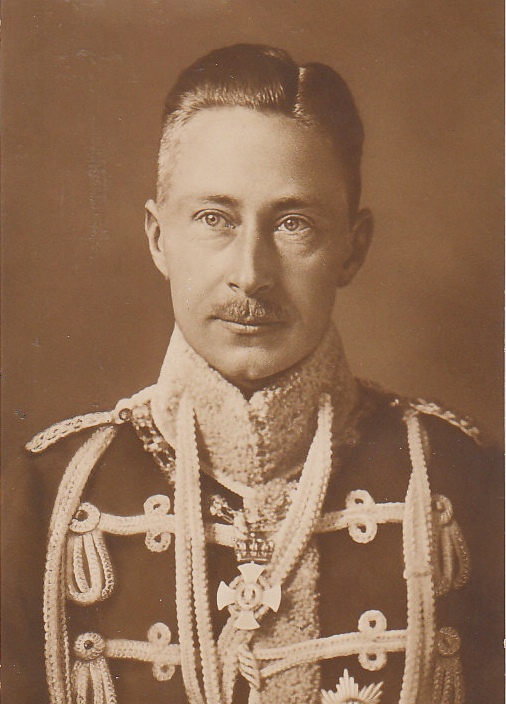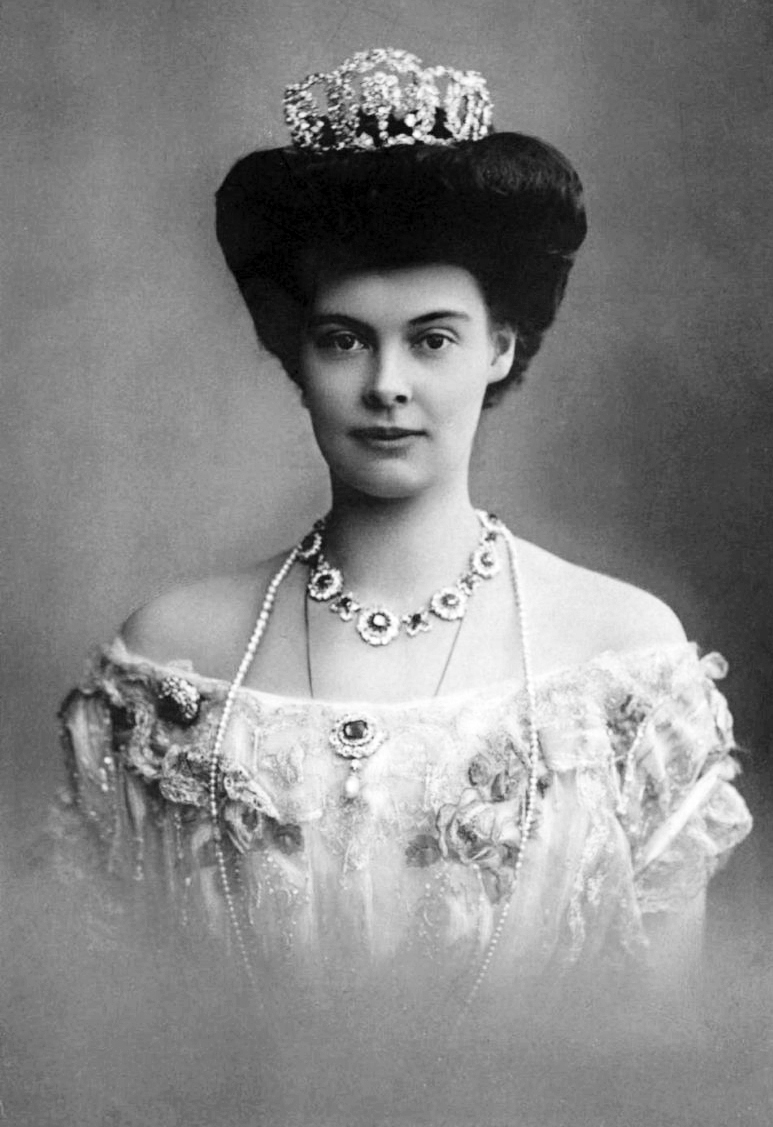 |
Tsar Simeon and Princess Marie Louise. Photo (c) Paraskeva Georgieva. |
Last Friday, on 13 January, Princess Marie Louise of Bulgaria celebrated her ninetieth birthday in the capital of her homeland, Sofia. She arrived for the event together with her sons Prince Karl-Boris and Prince Hermann zu Leiningen, her daughter Princess Alexandra von Kohary with her husband Jorge Champalimaud Raposo de Magalhães and their children, as well as her son Pawel Chrobok, Prince von Kohary. On the occasion of Princess Marie Louise’s birthday, a thanksgiving prayer service was held in the St. Alexander Nevsky Cathedral., which she personally attended, accompanied by King Simeon II. In addition to her children, the Royal Family included Princess Kalina, her husband Kitin-Muñoz and Prince Simeon-Hasan. Unfortunately, Queen Margarita was unable to return from Madrid, where she is recovering from hip joint surgery.
 |
Princess Marie Louise. Photo (c) Paraskeva Georgieva. |
During the duration of the service, Plovdiv Metropolitan Nikolai addressed the following remarks to the princess and those present in the church:
Your Royal Highness,
On the day of your birth, 21 cannon salutes were fired over the capital of Bulgaria, Sofia, and a thousand people gathered to express the joy of the entire nation that God has blessed the Royal Family, and thus our country, with a child. Two days later, you received Holy Baptism and were accepted into the fold of the Holy Orthodox Church. The blessed Metropolitan Stefan and later Bulgarian Exarch baptized you, and your Godfather is the chair of the National Assembly Alexander Malinov. Let me say one more time, in order to understand the significance of the state act – the head of the church baptized you and you were accepted from the holy font by the entire Bulgarian people in the person of the highest representative of the legislative body. From the moment of your birth and your baptism, you have been in the embrace of the Bulgarian Church and the Bulgarian people, and I assure you that this is still the case to this day.
I will not dwell on the difficulties you have gone through in your life. The fact that you lost your father so young, together with your brother, His Majesty Simeon II, is sad and should not happen to any child. The fact that soon after you and your family were expelled from your homeland is a consequence of the historical vicissitudes to which our entire people fell victim. We regret and suffer with you, but unfortunately, history is what it is. We cannot change it, but we must remember it.
I, for example, remember how you were welcomed in Sofia in 1991, when you, as the first member of the Royal Family, set foot on your Motherland again. In Plovdiv, they still have an unforgettable memory of your visit with your blessed mother, Her Majesty Queen Mother Giovanna. These thousands of rallies, these ovations and tears in the eyes especially of the older Bulgarians, your peers, may have redeemed even a little of the bitterness you suffered. Surely the people’s love for you and your family, which was shown then and was shown many times later, convinced you that Bulgaria considers you its daughter, flesh of the flesh and blood of the blood of the people.
You certainly have many merits and achievements in your life, first of all your children and family. From the point of view of the Bulgarian statehood, a huge merit of yours is that during all these years, in exile and in our country, you have steadfastly stood by your brother, His Majesty the King of the Bulgarians and modestly, quietly, sometimes imperceptibly to the general public, but you firmly and steadfastly support it. We know very well what His Majesty did for the Bulgarian state and for the Bulgarian people, about the extent to which his personal authority and efforts made it possible for Bulgaria to once again be an integral part of the family of European nations. We will never forget what His Majesty did for the Bulgarian Orthodox Church by helping to overcome the unfortunate schism. Every person, and especially the statesman, when he has to make difficult and responsible decisions, needs to ask his close people, his family and his brothers or sisters, from whom he can seek support and advice. His Majesty has mentioned more than once how close you are to his heart. We are sure that just as in decisive moments he relied on the advice of his wife, Her Majesty Queen Margarita and his family, so he also turned to you for advice. Moreover, you have always given him good advice and sincere support as a loving sister. I am sure he has thanked you for your devotion not once. We also thank you, because your love and your devotion to your royal brother is an expression of your love for the Bulgarians and for Bulgaria, of which your family, in two historical periods, was the personification, and for the Bulgarian Orthodox Church, because of the Divine character of royal power, for which will always be God’s mercy and blessing.
In conclusion, I want to share a small but very important detail of your personal history, which, when I learned it, moved me greatly. Your aunt Princess Eudoxia, sister of O’Bose, the late King Boris III, bequeathed you her personal prayer book, on the first page of which was written “To Marie-Louise, who speaks to God in Bulgarian.” You lived in a foreign language environment. You spoke to God in Bulgarian! This is not just beautiful, in these gestures lies the true dignity of people of royal blood. Those who, even in exile, far from the Motherland, if they feel the need to turn to God, turn to him only and only in their native language. Because God wanted their personal destiny to be woven into the destiny of their Motherland, which is actually the Divine meaning of history.
My request to you is – as, of course, I wish you many more years of health and life – that you also give your children and nephews, not as a bequest, but from now on, a Bulgarian prayer book and write on it the words of Your aunt: “… talk to God in Bulgarian”. Invite them to pray together every day with one humble prayer for the Bulgarian people and for Bulgaria, as we are sure that you say it. For that Bulgaria, which has loved you since the day you were born and which is in such great need of this prayer today.
Your Royal Highness!
It was God’s will that you welcome and celebrate your blessed 90th anniversary in the Motherland! Allow me, on behalf of His Holiness the Bulgarian Patriarch Neophyte and my Most Eminent fellow synodal metropolitans, the most consecrated bishops and clergy, to wish you many more years blessed with health, strength and spiritual joys!
May God help you, may God protect you, Your Royal Highness, and grant you, your children and loved ones many and happy years.
 |
| King Boris with his two children, Princess Maria Luisa and Crown Prince Simeon. Photo (c) Bulgarian Royal House. |
Born on 13 January 1933 at Sofia, Princess Maria Luisa of Bulgaria was the first child of King Boris III of Bulgaria (1894-1943) and his wife Queen Ioanna (1907-2000; née Princess Giovanna of Savoy), who had married in 1930. The princess was joined by a brother, Crown Prince (and later King) Simeon, in 1937.
 |
| Prince Karl zu Leiningen and Princess Marie Louise of Bulgaria, 1957. |
Princess Marie Louise of Bulgaria married Prince Karl Vladimir Ernst Heinrich zu Leiningen in a civil ceremony on 14 February 1957 in Amorbach; this was followed by a religious ceremony on 20 February 1957 at the Russian Orthodox Church in Nice. Prince Karl zu Leiningen (1928-1990) was the son of Fürst Karl zu Leiningen and Grand Duchess Maria Kirillovna of Russia, the daughter of Grand Duke Kirill Vladimirovich and Grand Duchess Victoria Feodorovna. Karl and Marie Louise had two sons: Prince Boris (b.1960) and Prince Herman (b.1963). The couple divorced on 4 December 1968.
 |
| Princess Marie Louise of Bulgaria and Bronislaw Chrobok, 1969. |
On 16 November 1969 at Toronto, Canada, Princess Maria Luisa married Bronislaw Chrobok (b.1933). The son of a Polish officer, at the outset of the Second World War, his family settled in London, where Bronislaw graduated from college. The marriage ceremony was conducted by the prominent professor of Theology, Protopresbyter Alexander Schmemann. The couple’s best man at the marriage was Stefan Grouef, the son of the Royal Chancellory Office head Pavel Grouev. Marie Louise and Bronislaw had two children, Alexandra (b.1970) and Pawel-Alistair (b.1972).



















